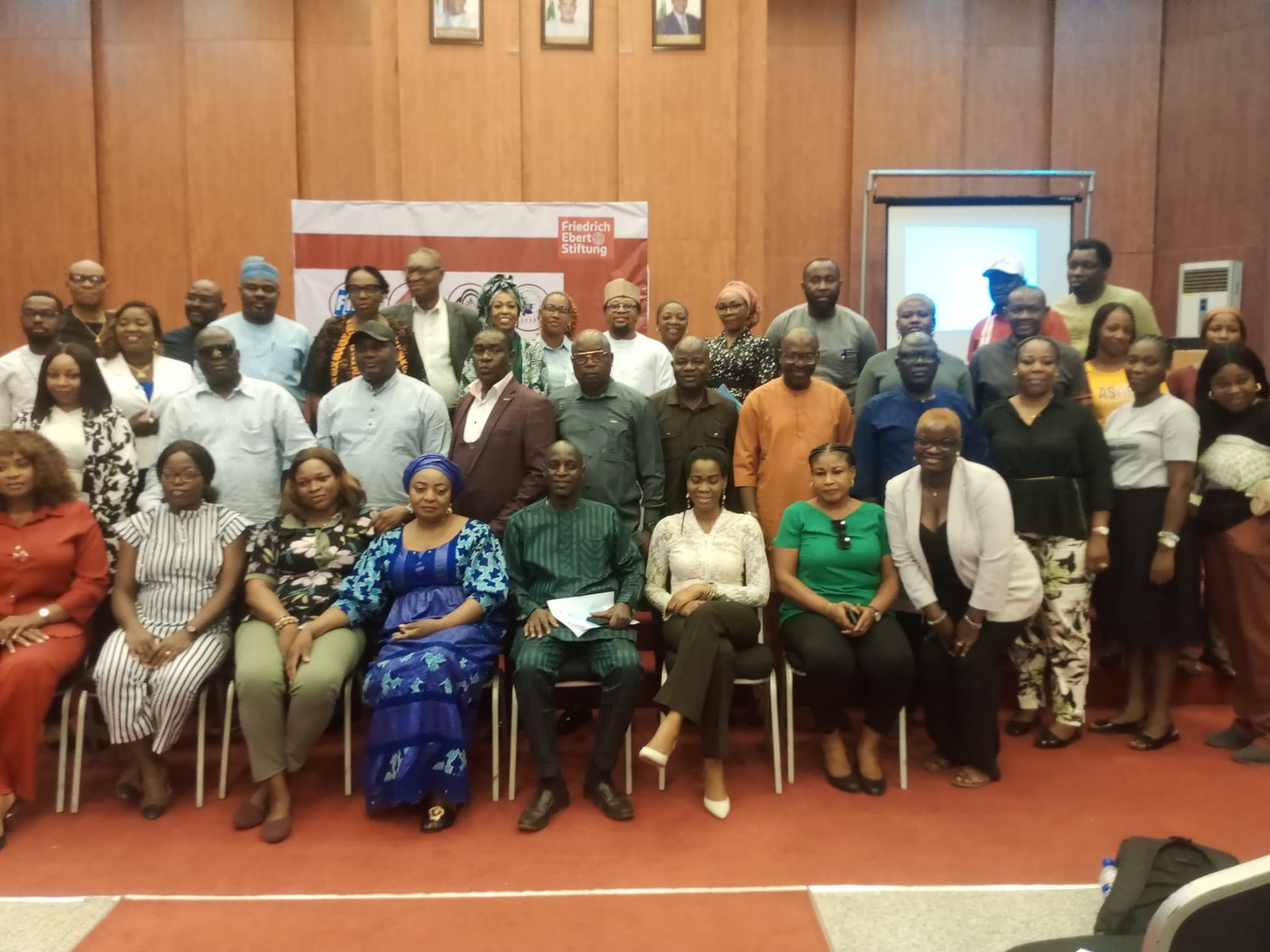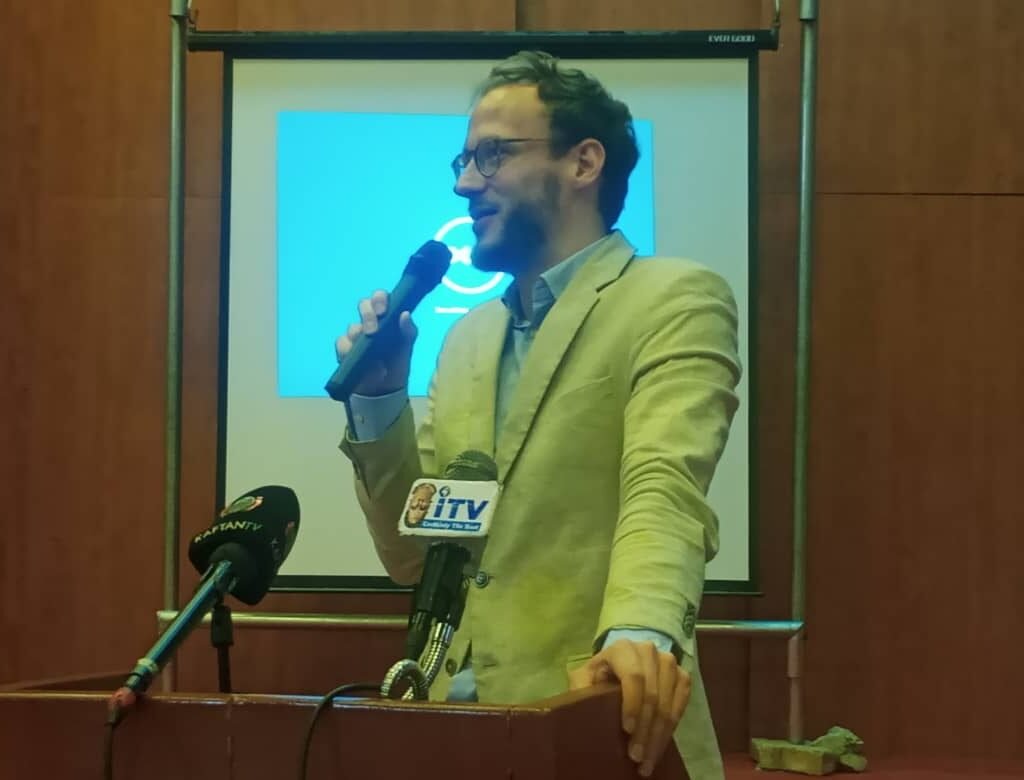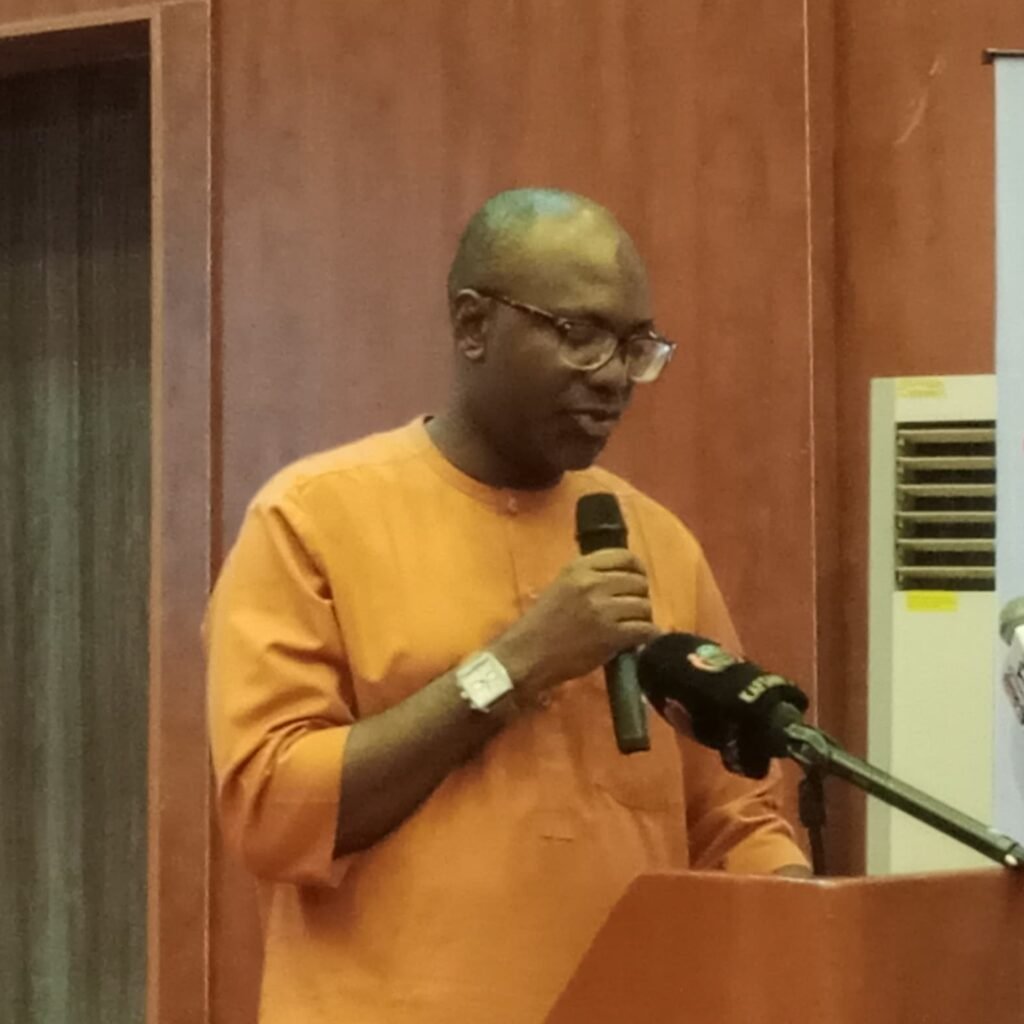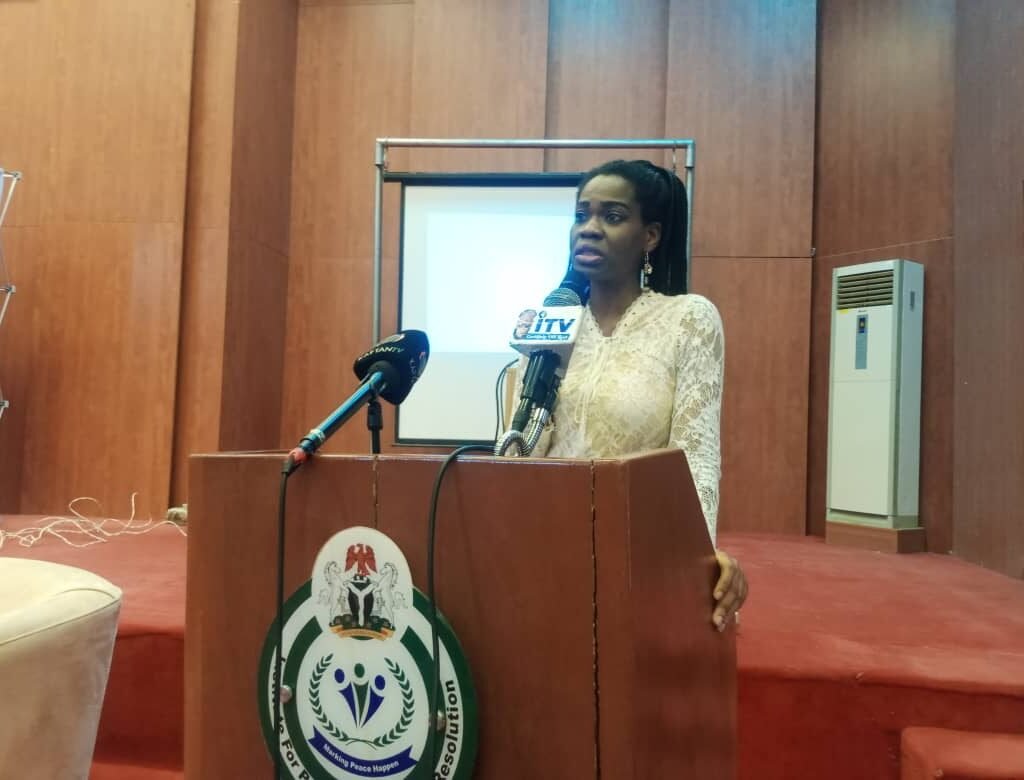
Abuja, Nigeria – In a major step toward safeguarding workers’ rights in Nigeria’s evolving energy sector, the Mondial FVN , in partnership with Nigeria Union of Petreoleum and Natural Gas Workers,NUPENG,National Union of Electricity Employees NUEE and The National Union of Chemical, Footwear, Rubber, Leader and Non-Metalic Employees NUCFRLAMPE , has unveiled the JustTransition Project. The initiative aims to foster dialogue between policymakers, trade unions, and industry stakeholders to ensure that Nigeria’s transition to clean energy is both equitable and sustainable.
The event, held in Abuja, brought together government officials, labor leaders, renewable energy advocates, and civil society organizations to discuss policies that balance economic growth with social justice. Central to the discussions was the presentation of the Workers’ Charter of Demands, a document advocating for fair labor practices and worker protections amid Nigeria’s shift towards renewable energy.
In his opening remarks, Lennart Oestergaard, Resident Representative of Friedrich-Ebert-Stiftung Nigeria, highlighted the global urgency for a just energy transition and the need for Nigeria to proactively protect workers affected by the shift.
“As Nigeria moves towards cleaner energy sources, we must ensure that workers are not displaced or exploited. A just transition means that no one is left behind, and this requires deliberate policies that promote job security, social dialogue, and economic fairness,” he stated.

Oestergaard further stressed that an inclusive transition would require collaboration between trade unions, the private sector, and the government to develop policies that protect workers from job losses while equipping them with new skills for the renewable energy sector.
A major highlight of the event was the introduction and presentation of the Workers’ Charter of Demands by Tunde Selman, a researcher, consultant, and Team Lead at GGT-Nigeria. The Charter outlines key labor rights and policy recommendations to ensure that the shift to clean energy does not undermine workers’ well-being.
“The Workers’ Charter is not just a document; it is a call to action. It presents a roadmap for ensuring that economic development does not come at the expense of workers’ rights,” Selman stated.

The Charter covers critical areas such as:
Job Security: Ensuring that energy transition policies do not lead to mass layoffs, and that displaced workers are provided with alternative employment opportunities.; Fair Wages and Working Conditions: Advocating for fair pay and safe working conditions in both the traditional and renewable energy sectors; Skills Development and Reskilling: Recommending government-led programs to train workers in emerging clean energy technologies; Social Protection Measures: Proposing social safety nets, including pension plans and health insurance, to support workers transitioning out of fossil fuel-dependent jobs; Workers’ Representation: Calling for stronger labor union participation in decision-making processes concerning energy transition policies.
Selman emphasized that a just transition must involve structured policies that address both economic growth and social justice, ensuring that Nigerian workers are not disadvantaged in the shift to clean energy.
In a goodwill message, Dr. Tosin Akande, Executive Secretary of the Renewable Energy Association of Nigeria (REAN), commended the efforts of Friedrich-Ebert-Stiftung and its partners in championing labor rights within the energy transition discourse. He stressed the need for an inclusive approach where trade unions, policymakers, and industry players work together to address workers’ concerns.
“A clean energy transition cannot be successful if workers are neglected. We must create mechanisms for reskilling and upskilling, particularly for workers who have spent their careers in the fossil fuel industry,” Dr. Akande remarked.
She further noted that the renewable energy sector in Nigeria has the potential to create thousands of new jobs but warned that without proper policy frameworks, many workers may be left unemployed or underpaid in the transition.
The event also featured a panel discussion on “Just and Clean Transition for Trade Unions in Nigeria”, bringing together labor leaders, energy sector experts, policymakers, and social justice advocates. The panel addressed key challenges and opportunities in the energy transition process, including:
- Balancing Economic Growth and Workers’ Rights: Experts debated how Nigeria can expand its renewable energy sector while ensuring that labor protections are upheld.
- Government and Private Sector Roles: Panelists discussed the need for government incentives and private sector investment to drive job creation in clean energy.
- Reskilling, Training and Capacity Building: Emphasis was placed on the importance of vocational training programs to prepare workers for new roles in the green economy.
- Policy and Legislative Reforms: Stakeholders called for stronger labor laws to protect workers’ rights and prevent job losses due to energy transition policies.

Trade union representatives urged the government to adopt policies that ensure workers’ voices are heard in energy transition planning. They also called for increased investment in social protection programs and financial support for affected workers.
The event concluded with a renewed commitment from stakeholders to ensure that Nigeria’s shift to a clean energy economy is fair, inclusive, and worker-friendly. Participants emphasized the need for continued engagement between trade unions, policymakers, and industry leaders to develop policies that prioritize both environmental sustainability and social justice.
The unveiling of the Workers’ Charter of Demands and the discussions on just transition mark a significant milestone in Nigeria’s journey toward an equitable energy future. Moving forward, stakeholders pledged to push for policy implementation that safeguards workers’ rights while advancing the country’s renewable energy goals.







